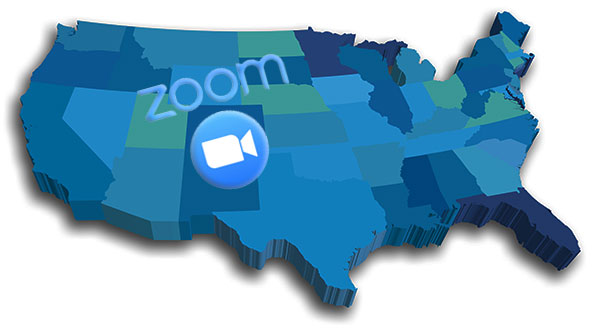A Guide for US Students Considering College in the UK
If you’re a high school student dreaming of studying abroad or just curious about how college works outside the US, you may have come across the term UCAS. It stands for the Universities and Colleges Admissions Service, which is the central application portal for nearly all undergraduate programs in the United Kingdom.
For American students, it’s important to note that the UCAS is both simpler and more specialized than the US college application process. There’s one application, one essay, and one strong emphasis: academic fit.
The UCAS Is the UK’s Version of the Common App
Think of UCAS as the UK’s version of the Common App, but a little more streamlined and a lot more focused on academics. Through UCAS, you can apply to up to five courses or universities with a single application. The catch? Each choice must be for a specific course (what Americans call a major).
For example, you might apply for Psychology at the University of Bristol, Psychology at Newcastle University, and Cognitive Neuroscience at Durham. Each counts as one of your five “choices,” even if they’re at the same university.
If you’re interested in Oxford or Cambridge, you can only apply to one or the other, not both. And if you’re applying for medicine, dentistry, or veterinary science, you can only list four programs, with your fifth choice reserved for something else – just in case.
How the UCAS Application Works
The UCAS process is clear and centralized. Here’s what American applicants need to do:
1) Create a UCAS account online at ucas.com.
2) Select up to five courses/universities. You’ll need to be decisive about your intended field of study.
3) Enter your academic history. Include all high school coursework, grades, and any standardized test scores (AP, SAT, or ACT, if relevant). Many competitive programs expect AP scores in related subjects.
4) Upload one academic reference. Typically, this comes from a teacher or counselor who knows you well in your subject area. Unlike US colleges, UK universities require just one.
5) Write your Personal Statement. This is your one and only essay, limited to 4,000 characters. It’s different from your Common App essay in that it’s an academic statement, not a personal story. You’ll explain why you want to study your chosen subject, what inspired your interest, and how your coursework, independent research, or related activities have prepared you. Avoid unrelated extracurriculars or “life lessons.”
6) Pay the application fee (one flat fee covers all five choices).
7) Submit your application by the appropriate deadline:
October 15 – Oxford, Cambridge, and Medicine/Dentistry/Vet Science programs
January 29 – Nearly all other courses/universities
After submitting, universities will respond through your UCAS account with one of three outcomes:
• Unconditional offer – You’re accepted with no further requirements.
• Conditional offer – You’re accepted if you meet specific final grades or AP scores.
• Rejection – No offer this time.
If you don’t receive any offers, don’t panic. You can apply through UCAS Extra (February–June) or Clearing (July–October) to find remaining openings at other universities.
How UCAS Differs from US College Applications
Here’s what often surprises American families:
• Academic Focus: UK universities care deeply about your readiness for your chosen subject. They evaluate grades, test scores, and your understanding of the field – not extracurriculars or personality.
• One Essay, Not Many: You write one Personal Statement for all universities, so it must fit every course you’re applying to.
• No Activities List: You won’t list your clubs, sports, or volunteer hours separately, only mention experiences directly tied to your academic goals.
• One Reference: You’ll submit just one academic recommendation.
• Direct Decisions: There’s no “holistic” review. If you meet or exceed the stated entry requirements, you’re in strong shape.
Key UCAS Dates to Keep in Mind
• Early September: UCAS applications open.
• October 15: Deadline for Oxford, Cambridge, and Medicine/Dentistry/Vet Science.
• January 29: Equal consideration deadline (all universities must review fairly).
• June 30: Final date for the main cycle before Clearing begins.
Tips for Success
• Start early. Explore courses during junior year and draft your personal statement over the summer before senior year.
• Do your research. Entry requirements vary widely by course. Some specify AP exams, subject prerequisites, or even particular scores.
• Ask for your reference early. Teachers and counselors are busy during application season.
• Stay organized. Track your offers and deadlines carefully in your UCAS account.
• Check your email often. Each university may have its own follow-up requests or interview process.
Why UCAS Appeals to American Students
Many students find UCAS refreshingly straightforward. You won’t need to juggle multiple essays or pay per-college application fees. Degrees in England and Wales typically take three years to complete (four in Scotland), making them more affordable and efficient than many U.S. programs.
For students who already know what they want to study and are eager to immerse themselves in that subject from day one, the UK system can be an excellent fit.
How to Get Started with the UCAS
If the idea of studying in the UK excites you, start exploring early! Visit ucas.com to browse programs, compare entry requirements, and build your own shortlist.
And if you’d like help determining whether a UK university could be a good academic, social, and financial fit for your family, our counseling team can guide you through every step – from course selection to personal statement editing to understanding conditional offers.
Looking for help with the college search and application process? We help students and families through the entire college planning journey – from search, applications and essays to interview prep, financial aid consultation and final school selection.
Contact us at info@signaturecollegecounseling.com or by phone, 845.551.6946. We work with students through Zoom, over the phone and by email.



